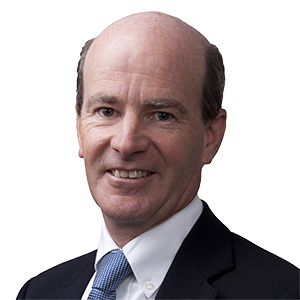The SFO’s new cooperation guidance SFO Corporate Guidance - GOV.UK (published on 24 April) updates the SFO’s original cooperation guidance published in 2019 and comes ahead of the new failure to prevent fraud offence coming into force in September 2025 (see here: Failure to prevent fraud: What should you be doing before September? | Global law firm | Norton Rose Fulbright).
The updated cooperation guidance provides helpful pointers on factors the SFO will consider in offering a Deferred Prosecution Agreement (DPA), reduced penalties, or making a decision not to prosecute. It also sets out the potential benefits of self-reporting, and its expectations in relation to the self-reporting process and cooperation.
We have set out below three key points on the changes to the guidance.
1. Emphasis on the potential benefits of self-reporting
The SFO guidance seeks to incentivise self-reporting (which it has previously noted has dropped off in recent years) by stating that if a company self-reports and then cooperates fully it will be invited to DPA negotiations unless there are exceptional circumstances. This is a subtle but important shift in the SFO’s position emphasis towards a presumption of a DPA invitation. Conversely, the SFO warns that companies which do not self-report may receive harsher penalties.
Whether or not to self-report will still remain a finely balanced decision for many corporates (see our recent article here: https://www.nortonrosefulbright.com/en-la/knowledge/publications/f57ee6c4/corporate-self-reporting-weighing-the-cost-of-coming-clean) and the SFO recognises that some level of internal investigation will usually be needed before considering a self-report. The guidance also notes that filing a proceeds of crime suspicious activity report or other similar notification will not in itself amount to a self-report.
2. “Exemplary cooperation” needed in order to be invited to a DPA in the absence of a self-report
The SFO explains in the guidance that if a company does not self-report, its cooperation must be “exemplary” in order to be invited to negotiate a DPA. The guidance sets out at paragraph 22 detailed examples of “exemplary cooperation”, including:
preserving and identifying to the SFO all relevant material (including material held by third parties, or under the company’s control but held overseas);
- presenting the facts on suspected criminal conduct as well as any previous relevant corporate criminal conduct and how that was resolved;
- engaging with the SFO in advance of any internal investigation steps which could prejudice the SFO’s investigation (and in particular interviews); and
- presenting to the SFO a thorough analysis of the company’s compliance programme (including any deficiencies identified).
The guidance states that waiver of legal privilege is not required, but the SFO emphasises that this will be viewed as a marker of cooperation, including in relation to legally privileged interview notes.
Importantly, the guidance states that a company which takes all of the steps set out at paragraph 22 is likely to be viewed as having provided exemplary cooperation.
3. A commitment to make decisions (and investigate) quickly
The SFO guidance seeks to give entities considering self-reporting greater clarity on timescales: it states that it will contact a self-reporting entity within 48 hours, decide within six months of a self-report whether or not to open an investigation, investigate “reasonably quickly” and conclude DPA negotiations within six months of an invitation to open such negotiations. The key unknown in that timescale is how long the SFO’s investigation itself will take – but the SFO has shown under the current director a commitment to work at speed.











